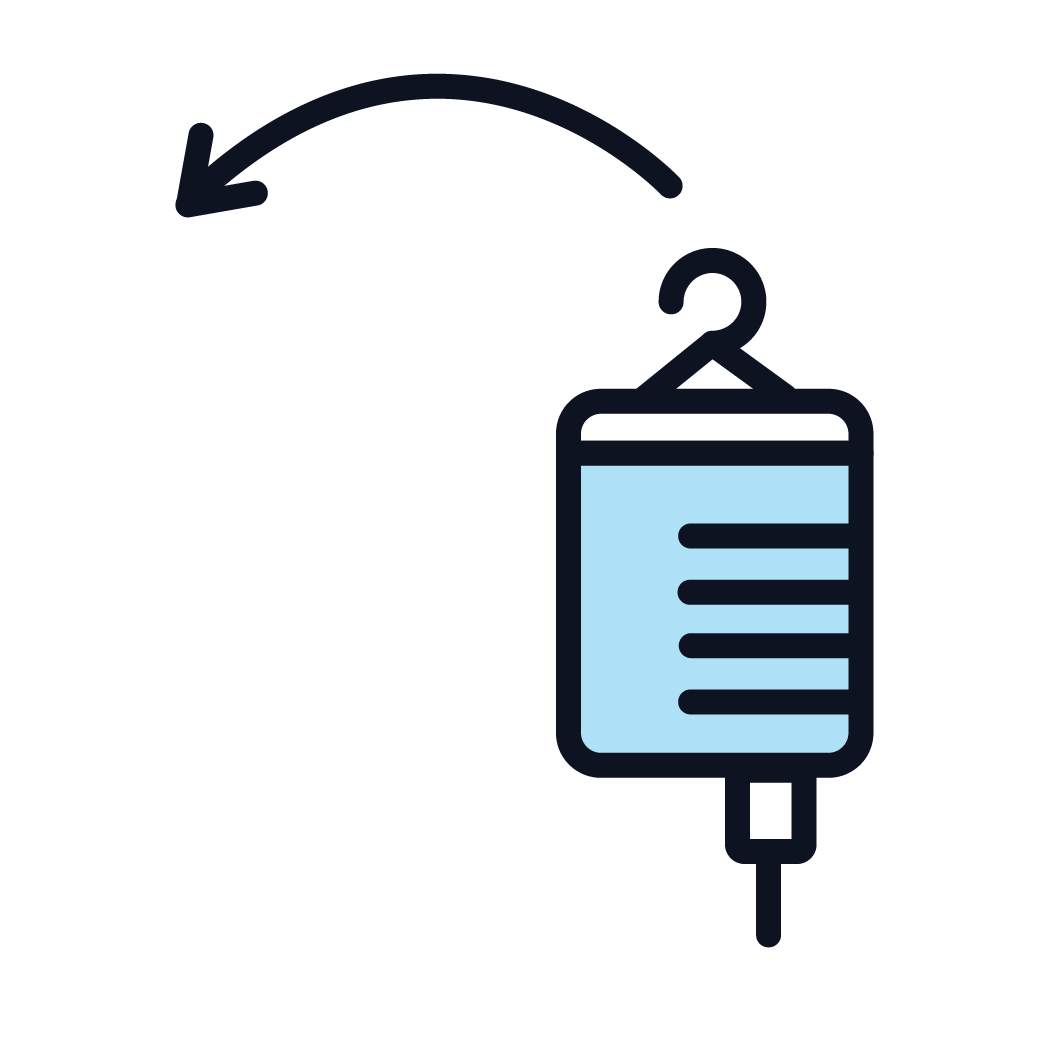Tepadina, also known as Thioplex or thiotepa, is a chemotherapy medication that works by attaching itself to cancer cells and stopping them from growing and dividing.
A type of chemotherapy medication that also goes by its scientific name thiotepa and a different trade name Thioplex. Other names this medication is known for include thiophosphoamide, TESPA, and TSPA. Tepadina is primarily used to treat cancers around the abdominal region. This can include peritoneal mesothelioma (cancer that affects the tissue lining of the abdomen) and other cancers in the bladder or ovaries.
Depending on the stage in mesothelioma (or other cancer), Tepadina can be used alone or in conjunction with other treatments like radiation, targeted therapies, surgery, and immunotherapy.
Thiotepa is an alkaline agent and fights cancer cells through a process called alkylation. This process involves the chemotherapy drug attaching itself to rapidly dividing cancer cells to slow or stop them from growing and dividing.
The exact dose and schedule your doctor will choose for chemotherapy depend on the patient’s height and weight, how the drug is administered, the patient’s general health, and the type and stage of the cancer being treated.
This chemotherapy medication can be administered in a few different ways. Through a vein (intravenously), into the bladder (intravesicular), into the spinal fluid (intrathecal), or into the abdominal (intraperitoneal).

Adverse effects of chemotherapy treatment can be manageable and usually go away once treatment has ended. Talk to your doctor if any side-effects become overbearing, and they may prescribe other medications to help. However, your doctor will perform regular check-ups to monitor your body’s responses to Tepadina and adjust the dosage accordingly.
The most common side-effect of treatment is low white blood cell count. Since white blood cells (WBC) help your body fight infection and chemotherapy can cause your WBC number to drop, you are much more susceptible to infection from outside sources. It’s best to avoid large groups or being around sick people during treatment.
Other side-effects of Tepadina are:
Less common side-effects that occur in 10-29% of patients:
Contact your doctor after 24 hours of the following symptoms:

Some precautions to consider before, during, and after treatment can help the patient have a better experience.
Keep communication open with your cancer care team and tell them about any concerns or questions you may have about chemotherapy drug Tepadina or Thioplex. They’ll be able to let you know if this is the right treatment option for you.
Jennifer Verta thrives as a digital content writer at Mesothelioma Hub. She has been producing content for clients since before she graduated from the University of Colorado at Denver with a Bachelor of Arts in Communication and a Minor in English Writing. Jen’s mission is to help promote awareness of mesothelioma to as many people as possible by providing only the most up-to-date and accurate content available. When she isn’t cranking the gears at work, Jen can be found snowboarding, hiking, catching live music, or socializing with friends.
CancerResearchUK. (2019). Thiotepa (Tepadina). Retrieved on April 27th, 2020 from https://cancerresearchuk.org/about-cancer/cancer-in-general/treatment/cancer-drugs/drugs/thiotepa
ChemoCare. (2020). Thiotepa. Retrieved on April 27th, 2020 from https://chemocare.com/chemotherapy/drug-info/Thiotepa.aspx
MedicineNet. (2013). Thiotepa – Injection, Thioplex. Retrieved on April 27th, 2020 from https://medicinenet.com/thiotepa-injection/article.htm
OncoLink. (2019). Thiotepa (Thioplex, Tepadina). Retrieved on April 27th, 2020 https://oncolink.org/blogs/2020/04/covid-19-emergency-financial-assistance-for-people-with-cancer/
WebMD. (2020). Tepadina Vial. Retrieved on April 27th, 2020 from https://webmd.com/drugs/2/drug-168848/tepadina-injection/details